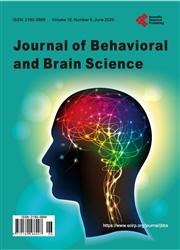Drug-Seeking Behavior Is Significantly Attenuated in Nutritionally Supplemented Cocaine Withdrawn Sprague-Dawley Rats
引用次数: 0
Abstract
Aim: The effect of patented nutritional supplementation on drug-seeking behavior in cocaine addicted rats during acute drug withdrawal was investigated using a biased Conditioned Place Preference (CPP) paradigm. Method: Twenty-four (24) male Sprague-Dawley rats with pre-conditioned preference for the black chamber of the CPP box were randomly divided into Cocaine (COC) or Saline (SAL) treated groups. Rats (n = 12) treated with cocaine hydrochloride 20 mg/kg/ml, i.p. (COC group) were confined individually to the white chamber on days 1, 3, 5 and 7. On alternate days, they were given 1 ml saline vehicle, i.p. and confined to the black chamber. Control rats (SAL group, n = 12) received only vehicle on all 8 days and were confined on alternate days to the white or black chamber. Positive place preference was confirmed for COC rats, which subsequently received 6 increasing daily doses of cocaine. CPP performances of both COC and SAL rats were recorded following an acute 3-day withdrawal period. All animals were then randomly assigned to rats fed either chow reconstituted with the nutritional supplement (COC-S and SAL-S) or standard rat chow (COC-N and SAL-N) for 8 weeks, followed by final CPP performances. Results: Following supplementation, COC-S rats made significantly less entries and time spent in the white chamber (p Conclusion: Drug-seeking behavior that persisted during cocaine withdrawal was significantly diminished in the nutritionally supplemented.营养补充可卡因戒断的Sprague-Dawley大鼠的药物寻求行为显著减弱
目的:采用有偏见的条件性位置偏好(CPP)范式,研究了专利营养补充剂对可卡因成瘾大鼠急性停药期间药物寻求行为的影响。方法:将24只雄性Sprague-Dawley大鼠随机分为可卡因(COC)或生理盐水(SAL)治疗组,这些大鼠对CPP盒的黑腔有预先条件偏好。在第1、3、5和7天,用盐酸可卡因20mg/kg/ml腹腔注射处理的大鼠(n=12)(COC组)被单独限制在白色室中。每隔几天,给他们1毫升生理盐水载体,腹膜内注射,并将其限制在暗室中。对照大鼠(SAL组,n=12)在所有8天只接受赋形剂,并在交替的几天内被限制在白色或黑色室中。对COC大鼠的阳性位置偏好被证实,随后每天接受6次增加剂量的可卡因。COC和SAL大鼠在急性3天停药期后均记录CPP表现。然后将所有动物随机分配给喂食用营养补充剂(COC-S和SAL-S)或标准大鼠食物(COC-N和SAL-N)重建的食物的大鼠8周,然后进行最终的CPP表现。结果:补充后,COC-S大鼠进入白室的次数和在白室中花费的时间显著减少(p结论:在补充营养的情况下,可卡因戒断期间持续存在的寻毒行为显著减少。
本文章由计算机程序翻译,如有差异,请以英文原文为准。
求助全文
约1分钟内获得全文
求助全文

 求助内容:
求助内容: 应助结果提醒方式:
应助结果提醒方式:


